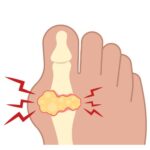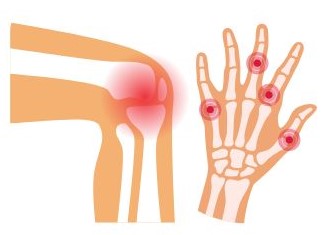Autoimmune diseases occur when the immune system mistakenly attacks the body’s own cells, tissues, or organs, leading to inflammation and damage. These diseases can affect various parts of the body, and their causes are often complex and multifactorial. Understanding autoimmune diseases is essential for effective management and treatment. This article provides a detailed overview of autoimmune diseases, including their types, symptoms, diagnosis, and treatment options.
What Are Autoimmune Diseases?
In a healthy immune system, the body can distinguish between its own cells and foreign invaders such as bacteria and viruses. However, in autoimmune diseases, the immune system fails to recognize its own cells, leading to an inappropriate immune response. This can result in chronic inflammation, tissue damage, and impaired organ function.
Causes of Autoimmune Diseases
The exact cause of autoimmune diseases is often unknown, but several factors may contribute to their development:
- Genetic Factors: Family history of autoimmune diseases can increase the risk.
- Environmental Triggers: Infections, exposure to toxins, or certain medications may trigger autoimmune responses in susceptible individuals.
- Hormonal Factors: Many autoimmune diseases are more prevalent in women, suggesting that hormones may play a role.
- Dysregulation of the Immune System: Abnormalities in immune cell function can lead to autoimmune reactions.
Common Types of Autoimmune Diseases
Autoimmune diseases can affect various organs and systems in the body. Some of the most common types include:
1. Rheumatoid Arthritis (RA)
- Description: A chronic inflammatory disorder that primarily affects joints.
- Symptoms: Joint pain, swelling, stiffness, fatigue, and potential joint deformities.
2. Systemic Lupus Erythematosus (SLE)
- Description: A systemic autoimmune disease that can affect multiple organs, including the skin, joints, kidneys, and heart.
- Symptoms: Fatigue, joint pain, skin rashes (especially a butterfly rash on the face), and organ involvement.
3. Multiple Sclerosis (MS)
- Description: An autoimmune disease that affects the central nervous system, leading to the deterioration of the protective covering of nerve fibers.
- Symptoms: Numbness, muscle weakness, coordination problems, vision issues, and cognitive changes.
4. Type 1 Diabetes
- Description: An autoimmune disease where the immune system attacks insulin-producing cells in the pancreas.
- Symptoms: Increased thirst, frequent urination, extreme fatigue, and blurred vision.
5. Hashimoto’s Thyroiditis
- Description: An autoimmune condition that causes inflammation of the thyroid gland, often leading to hypothyroidism.
- Symptoms: Fatigue, weight gain, cold intolerance, and depression.
6. Celiac Disease
- Description: A skin condition characterized by red, scaly patches and, in some cases, joint pain and inflammation.
- Symptoms: Skin plaques, itching, joint pain, and stiffness.
7. Graves’ Disease
- Description: An autoimmune disorder that causes overactivity of the thyroid gland (hyperthyroidism).
- Symptoms: Weight loss, rapid heartbeat, heat intolerance, and anxiety.
More Disease
8. Pernicious Anemia
9. Myasthenia Gravis
10. Sjögren’s Syndrome
11. Autoimmune Hepatitis
12. Ankylosing Spondylitis
13. Systemic Sclerosis (Scleroderma)
14. Addison’s Disease
15. Crohn’s Disease
16. Ulcerative Colitis
17. Vasculitis (e.g., Granulomatosis with Polyangiitis)
18. Alopecia Areata
19. Dermatomyositis
20. Polymyositis
21. Eosinophilic Granulomatosis with Polyangiitis
22. Microscopic Polyangiitis
23. Chronic Inflammatory Demyelinating Polyneuropathy (CIDP)
24. Neuromyelitis Optica (NMO)
25. Psoriasis
26. Psoriatic Arthritis
27. Fibromyalgia (though debated, often considered autoimmune-related)
28. Giant Cell Arteritis
29. Takayasu Arteritis
30. Behçet’s Disease
This list encompasses a wide range of autoimmune diseases, affecting various organs and systems in the body.
Symptoms of Autoimmune Diseases
Symptoms of autoimmune diseases can vary widely depending on the specific condition and the organs affected. Common symptoms include:
- Fatigue: Persistent tiredness that doesn’t improve with rest.
- Joint Pain and Swelling: Often seen in rheumatoid arthritis and lupus.
- Skin Rashes: Such as those seen in lupus or psoriasis.
- Muscle Weakness: Common in conditions like myasthenia gravis.
- Fever: A low-grade fever may accompany inflammation.
- Organ-Specific Symptoms: Depending on which organs are affected (e.g., kidney issues in lupus, thyroid problems in Hashimoto’s).
Diagnosis of Autoimmune Diseases
Diagnosing autoimmune diseases can be challenging due to overlapping symptoms and the variability in presentations. A combination of the following approaches is typically used:
1. Medical History and Physical Examination
- A thorough history of symptoms and any family history of autoimmune diseases is essential.
- A physical examination can help identify signs of inflammation or specific organ involvement.
2. Blood Tests
- Antibody Tests: Tests that detect specific autoantibodies in the blood, such as antinuclear antibodies (ANAs) for lupus or rheumatoid factor (RF) for rheumatoid arthritis.
- Inflammatory Markers: Tests for C-reactive protein (CRP) and erythrocyte sedimentation rate (ESR) can indicate inflammation.
3. Imaging Studies
- Imaging techniques, such as X-rays, MRI, or ultrasound, may be used to assess joint damage or inflammation in specific organs.
4. Biopsy
- In some cases, a tissue biopsy may be necessary to confirm the diagnosis and assess the extent of damage.
Treatment of Autoimmune Diseases
Treating autoimmune diseases often requires a multifaceted approach tailored to the specific condition and individual patient needs. While there is no cure for most autoimmune diseases, effective management can help alleviate symptoms, reduce inflammation, and prevent disease progression. Here’s a closer look at the treatment options available:
1. Medications
A. Anti-Inflammatory Drugs
- Nonsteroidal Anti-Inflammatory Drugs (NSAIDs): Commonly used to relieve pain and reduce inflammation. Examples include ibuprofen and naproxen.
- Corticosteroids: These powerful anti-inflammatory medications, such as prednisone, help reduce inflammation and suppress the immune system. They are effective for acute flare-ups but may have significant side effects with long-term use.
B. Immunosuppressants
- These drugs reduce the activity of the immune system to prevent it from attacking the body’s tissues. Common immunosuppressants include:
- Methotrexate: Often used for rheumatoid arthritis and psoriasis.
- Azathioprine: Used in various autoimmune diseases to suppress the immune response.
- Cyclophosphamide: A stronger immunosuppressant typically reserved for severe cases.
C. Biologics
- Targeted therapies that specifically inhibit components of the immune system. Biologics are often used for conditions like rheumatoid arthritis, psoriasis, and Crohn’s disease. Examples include:
- Tumor Necrosis Factor (TNF) Inhibitors: Such as etanercept and infliximab, which block TNF, a protein involved in inflammation.
- Interleukin Inhibitors: Target specific interleukins to reduce inflammation (e.g., ustekinumab for psoriasis).
D. Disease-Modifying Antirheumatic Drugs (DMARDs)
- These medications can slow disease progression and prevent joint damage in rheumatoid arthritis. Methotrexate is a common DMARD, but others include sulfasalazine and leflunomide.
2. Lifestyle Modifications
A. Dietary Changes
- Anti-Inflammatory Diet: Incorporating foods rich in omega-3 fatty acids (e.g., fish, flaxseeds), fruits, vegetables, whole grains, and healthy fats can help reduce inflammation.
- Elimination Diet: Some individuals find relief by identifying and removing trigger foods (like gluten or dairy) from their diet.
B. Regular Exercise
- Engaging in regular physical activity can help improve overall health, maintain mobility, and reduce fatigue. Low-impact exercises such as swimming, walking, or yoga are often recommended.
C. Stress Management
- Techniques such as mindfulness, meditation, and deep-breathing exercises can help manage stress, which may exacerbate autoimmune symptoms.
3. Physical and Occupational Therapy
- Physical Therapy: Can improve strength, flexibility, and mobility, particularly for conditions affecting the joints or muscles.
- Occupational Therapy: Helps individuals develop strategies to manage daily activities and maintain independence despite physical limitations.
4. Monitoring and Follow-Up Care
- Regular check-ups with a healthcare provider are essential to monitor the disease’s progression, evaluate treatment effectiveness, and adjust medications as necessary.
5. Alternative and Complementary Therapies
- Some individuals explore alternative therapies such as acupuncture, chiropractic care, or herbal supplements. It’s crucial to consult with a healthcare provider before starting any alternative treatments to avoid potential interactions with conventional medications.
6. Support Groups and Counseling
- Connecting with others who have similar experiences can provide emotional support and practical tips for managing life with an autoimmune disease. Professional counseling may also be beneficial for coping with the emotional impact of chronic illness.
Effective treatment of autoimmune diseases requires a comprehensive approach that includes medication, lifestyle modifications, and ongoing care. While challenges exist, many individuals can manage their conditions successfully and lead fulfilling lives. Collaboration with healthcare providers, staying informed about one’s condition, and being proactive in treatment can significantly improve outcomes for those living with autoimmune diseases.

Autoimmune diseases are complex conditions that require careful management and a multidisciplinary approach. While the exact causes remain unclear, understanding the symptoms, diagnosis, and treatment options is crucial for individuals affected by these diseases. With proper care, many people with autoimmune diseases can lead active, fulfilling lives. If you suspect you may have an autoimmune condition, consulting a healthcare professional for assessment and support is essential.







